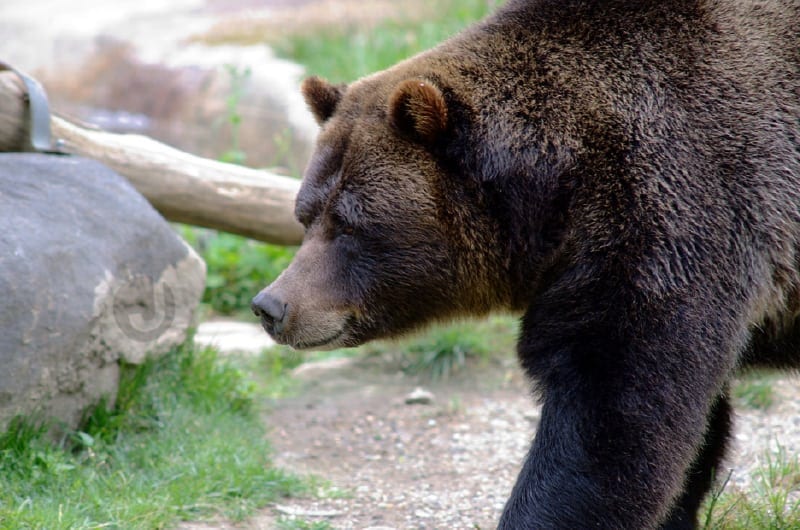When my sister got married, my family and I made the trek to a very private, secluded destination for the ceremony and reception… Homer, Alaska.
Tom “We’ll Leave the Light on For You” Bodett, wrote about Homer, AK in his book, As Far as You Can go Without a Passport. The town of 5,000 people calls itself “the end of the road.”
It’s remote.
The town itself, a charming shoreline of businesses and fisheries, is a densely populated urban hub of about 360 people per square mile. Half the town’s official acreage is water. The rest of the borough (that’s what they have in Alaska instead of counties) has 3 people per square mile. They each get about 200 acres of Alaskan wilderness to themselves.
My sister’s father-in-law lives in Alaska. He and his neighbors all have what’s known as an “open door policy.” He was that kind of guy in the first place, and then Alaska seems to attract those who genuinely love and trust humanity, as long as there are a few hundred acres of hinterland in between them.
His door is open, his fridge is available to all, and there are any number of friends who just drop by, or stay for a few days resting up between hunting or fishing trips. Despite the distance, he knows everybody in the area.
His next closest neighbor locks her door up, not with a key but with a deer antler on the outside when she’s not home. My sister had to ask why she “locked” it with something any person could easily undo. The answer? “What if someone needs to get in?”
That’s the reality of living in Alaska. It’s a very distinct possibility that someone could be lost in the wilderness. Maybe they’ll find your house, but if you’re gone, their life-or-death situation could literally hinge on whether or not you’ve dead-bolted and sealed your home up tight – or if you have an open door policy.
People in some cities don’t even leave their door unlocked when they go out to the end of the driveway to get their newspaper. If they leave their door open, the only thing that would be found later is the smoking frame of their car after it’s been stripped and all the parts sold.
They have alarms, wireless cameras, bars on the windows, and Neighborhood Watch.
Down here in much of the lower 48 states (or at least in Fresno) we know that it’s a dangerous, dog-eat-dog world out there, and we’re wearing Milkbone underwear. We take precautions, we assume everyone is out to steal our stuff, and we plan accordingly. We do this because there is enough visible crime online and on TV to convince us that our hard-earned goods are at risk if we don’t protect them.
Apparently, though, too many of you think your computer networks live in Homer, Alaska too, because you’re effectively locking them up with a deer antler in the cyber equivalent of MLK and California.
Understand Your Geography
I live in the middle of the Central Valley of California. It’s a sport to joke about living in the “end of the world” or the “middle of nowhere.” Many of us remember what it was like when our neighboring city was a tiny, separate town and when the county seemed like a sparsely populated and isolated community. No one was going to bother us or our stuff.
In reality, we’re a busy hub where multiple trans-state freeways connect and where the airport can get you anywhere in the world in a few hops. We’re connected. We’re open. And we’re vulnerable to just about any urban problem that any city in the world is going to experience.
Unless you live in the equivalent of Homer, Alaska with my sister’s father-in-law, your business computers, your server, and your network are no different. That’s hard to do when your computer is connected to the WORLD wide web. Even so, you’re acting like your business and your systems are so small or so far off the radar that no one knows where you are, who you are, or what you’ve got.
You’re wrong.
Not only does your data and your systems live in an accessible location, they might as well live in Times Square. That’s how interconnected the digital world is. Your information is available everywhere. And everyone in the world is checking to see if you protect yourself like you live in Homer, Alaska, or the Big Apple.
Now, Alaska isn’t completely safe. The number of people relative to the total population who go missing each year is double the rest of the country. There are of threats in the wilderness. That’s why they protect themselves with survival gear, a gun, or flares when they venture out. They know the threats and what precautions to take. They prepare for as many eventualities as possible.
It’s very different with technology.
Most people are wandering around the digital world wearing the Alaskan wilderness equivalent of a raw salmon t-shirt and shorts.
You must get more aggressive in protecting your business. Remember where you and your data live – in the middle of the world’s most densely populated, open, and potentially threatening environment. Take action to protect you and your company.
…lest you be mauled by bears.
“Creative Commons Grizzly Bear @ Bronx Zoo” by Joseph Bylund has been modified and is licensed under CC BY 2.0



VIEW ALL